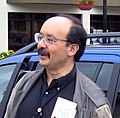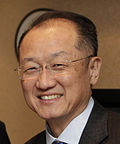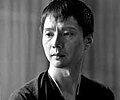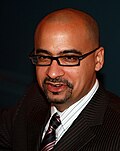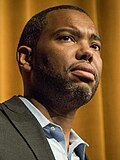| MacArthur Fellows Program | |
|---|---|
| Sponsored by | The John D. and Catherine T. MacArthur Foundation |
| Date | 1981 |
| Website | Official website |
The MacArthur Fellows Program, also known as the MacArthur Fellowship and colloquially called the "Genius Grant", [a] is a prize awarded annually by the John D. and Catherine T. MacArthur Foundation to typically between 20 and 30 individuals working in any field who have shown "extraordinary originality and dedication in their creative pursuits and a marked capacity for self-direction" and are citizens or residents of the United States. [5]
Contents
- Recipients
- 1981
- 1982
- 1983
- 1984
- 1985
- 1986
- 1987
- 1988
- 1989
- 1990
- 1991
- 1992
- 1993
- 1994
- 1995
- 1996
- 1997
- 1998
- 1999
- 2000
- 2001
- 2002
- 2003
- 2004
- 2005
- 2006
- 2007
- 2008
- 2009
- 2010
- 2011
- 2012
- 2013
- 2014
- 2015
- 2016
- 2017
- 2018
- 2019
- 2020
- 2021
- 2022
- 2023
- 2024
- 2025
- Educational background of recipients
- Notes
- References
- External links
According to the foundation's website, "the fellowship is not a reward for past accomplishments but rather an investment in a person's originality, insight, and potential", but it also says such potential is "based on a track record of significant accomplishments". The amount of the prize is $800,000 paid over five years in quarterly installments. Previously, it was $625,000. This figure was increased from $500,000 in 2013 upon the release of a review [6] of the MacArthur Fellows Program. The award has been called "one of the most significant awards that is truly 'no strings attached'". [7]
The program does not accept applications. Anonymous and confidential nominations are invited by the foundation and reviewed by an anonymous and confidential selection committee of about a dozen people. The committee reviews all nominees and recommends recipients to the president and board of directors. Most new fellows learn of their nomination and award upon receiving a congratulatory phone call. MacArthur Fellow Jim Collins described this experience in an editorial column of The New York Times . [3]












